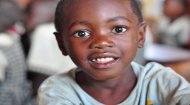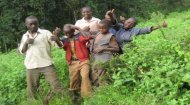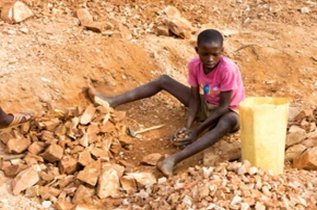|
Children in Uganda | Children in Uganda | Children in Uganda | Children in Uganda |
For more about life in Uganda including videos and photos, check out our Uganda profile pages.
More >
|
|

|
Health issues are a major concern for children in Uganda; 26,000 children under the age of five die every year die from diarrhoeal diseases and about a quarter of all children in Uganda do not have adequate food supplies for all or part of the year. As with other countries across Africa, and indeed the world, Uganda has a rising number of street children and its estimated that around 5000 children beg, scavenge, wash cars, steal or sell their bodies for daily survival. Unlike their counterparts in neighbouring Kenya, these children do not tend to sniff glue, rather bhang which is brought in from Somalia, via Moroto. It is this drug taking that the authorities account for the increase in violence in cities like Kampala where aiding street children is now illegal. Many children who escape end up as child labourers, effectively little more than modern day slaves. Although Uganda prides itself on being a very Christian society and a conservative one, in reality it is somewhat brutal with authority figures intimidating the population, not least because part of their income is expected to be met by fining wrongdoers whether they have done wrong or not. The general population have little faith in the police, who have to be paid by the victim to investigate crimes then pay again should they expect any stolen goods to be returned. If the perpetrator can pay more, the police simply won't bother carrying out their duties. As such, thieves often end up stabbed or speared and the local Christian community will consider that proper justice. There are few prospects for children in Uganda outside larger urban communities. Even those who pay to attend college for a vocational qualification such as teaching, rarely recoup their outlay, often ending up back as subsistence farmers like their parents before them or join the already over-filled ranks of the boda boda (motorcycle) drivers desperate for fares for food to eat later that day and pay for tomorrow's petrol as well as the fee for using the bike. Widespread use of the internet is now opening young people's eyes to how others live as many of their communities have only enjoyed electricity in recent years and world news (and lifestyles) were simply an unknown phenomena until now. The video (above) provides further glimpses into daily life for children in Uganda togrether with details of projects and programs to support children in Uganda. |
 Whilst the situation has now improved with the LRA in abeyance, the fear of the recent past remains.In the more secure south of the country, children in Uganda still face many difficulties. Just under 50% of the population is aged 14yrs or younger and life expectancy is 63.37 years (2019). Uganda continues to be one of the poorest countries in the world with sub-standard health care, high rates of malnutrition and diseases such as malaria rampant, assisted by less than half of those living in Uganda having access to safe drinking water. Around 41% of population live in poverty. There are an estimated 800,000 children orphaned through AIDS/HIV, out of an overall orphan population of some 1.2 million. Literacy rates are relatively high for males at 77% however this falls to just 57% for females. 18% of children never enrol at school and a further 66%, who have enrolled, drop out during their primary and secondary school years. Attendance at school is also affected by the high rates of malaria with 40% of all students being affected at any given time.
Whilst the situation has now improved with the LRA in abeyance, the fear of the recent past remains.In the more secure south of the country, children in Uganda still face many difficulties. Just under 50% of the population is aged 14yrs or younger and life expectancy is 63.37 years (2019). Uganda continues to be one of the poorest countries in the world with sub-standard health care, high rates of malnutrition and diseases such as malaria rampant, assisted by less than half of those living in Uganda having access to safe drinking water. Around 41% of population live in poverty. There are an estimated 800,000 children orphaned through AIDS/HIV, out of an overall orphan population of some 1.2 million. Literacy rates are relatively high for males at 77% however this falls to just 57% for females. 18% of children never enrol at school and a further 66%, who have enrolled, drop out during their primary and secondary school years. Attendance at school is also affected by the high rates of malaria with 40% of all students being affected at any given time.











